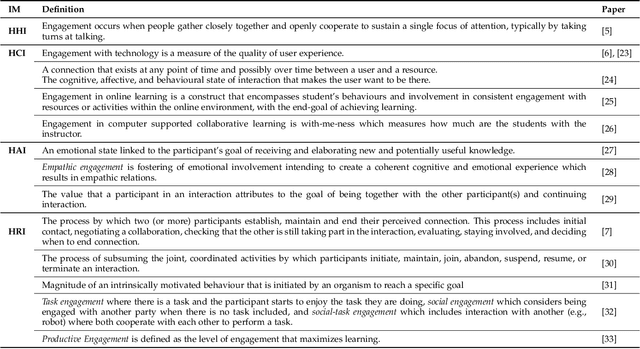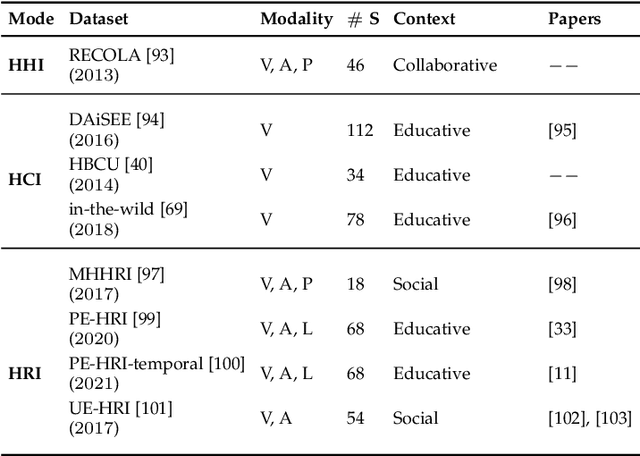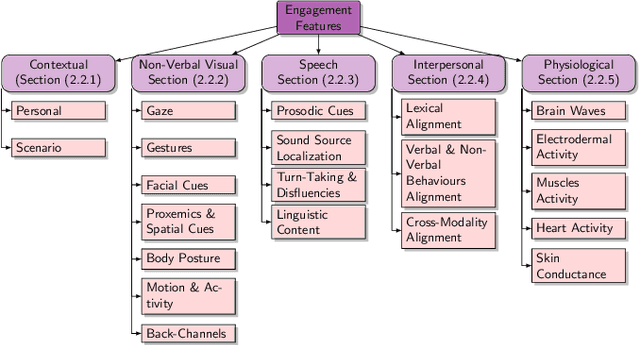Automatic Context-Driven Inference of Engagement in HMI: A Survey
Paper and Code
Sep 30, 2022



An integral part of seamless human-human communication is engagement, the process by which two or more participants establish, maintain, and end their perceived connection. Therefore, to develop successful human-centered human-machine interaction applications, automatic engagement inference is one of the tasks required to achieve engaging interactions between humans and machines, and to make machines attuned to their users, hence enhancing user satisfaction and technology acceptance. Several factors contribute to engagement state inference, which include the interaction context and interactants' behaviours and identity. Indeed, engagement is a multi-faceted and multi-modal construct that requires high accuracy in the analysis and interpretation of contextual, verbal and non-verbal cues. Thus, the development of an automated and intelligent system that accomplishes this task has been proven to be challenging so far. This paper presents a comprehensive survey on previous work in engagement inference for human-machine interaction, entailing interdisciplinary definition, engagement components and factors, publicly available datasets, ground truth assessment, and most commonly used features and methods, serving as a guide for the development of future human-machine interaction interfaces with reliable context-aware engagement inference capability. An in-depth review across embodied and disembodied interaction modes, and an emphasis on the interaction context of which engagement perception modules are integrated sets apart the presented survey from existing surveys.
 Add to Chrome
Add to Chrome Add to Firefox
Add to Firefox Add to Edge
Add to Edge